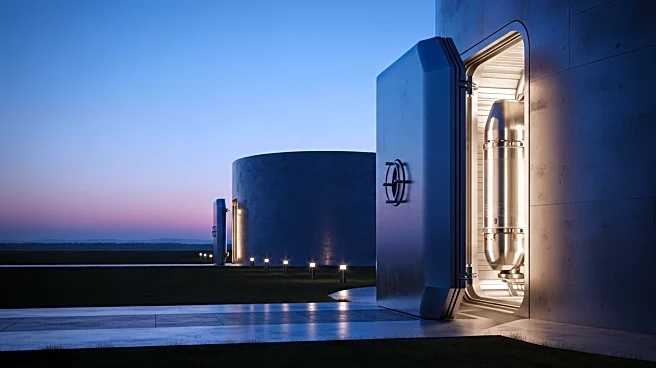What's Happening?
France and Germany are engaging in strategic discussions regarding the role of French nuclear weapons in European defense. This dialogue marks a significant shift, particularly for Germany, which has historically been resistant to such discussions. The talks are part of a broader initiative to enhance Europe's defense capabilities amidst ongoing geopolitical tensions, including Russia's war in Ukraine. France's nuclear doctrine includes a 'European dimension,' though the specifics of this are intentionally vague. The discussions also involve commitments to increase defense spending to 5% of GDP by 2030 and to expand weapons arsenals. Additionally, France and Germany announced a new initiative to develop a European early-warning system, dubbed JEWEL, which is open to other European countries.
Why It's Important?
The strategic dialogue between France and Germany on nuclear weapons is crucial for European security, especially in light of the ongoing conflict in Ukraine and uncertainties in global politics. By potentially integrating French nuclear capabilities into a broader European defense strategy, these discussions could lead to a more unified and robust defense posture in Europe. This move may also influence NATO dynamics, as France is not part of NATO's nuclear planning group. The commitment to increase defense spending and develop new defense systems reflects Europe's intent to bolster its military capabilities independently. This could have significant implications for European defense industries and international relations, particularly with Russia.
What's Next?
The discussions between France and Germany are likely to continue, with potential implications for European defense policy and NATO relations. The development of the JEWEL early-warning system could lead to increased collaboration among European countries in defense technology. As these initiatives progress, they may prompt reactions from other global powers, including Russia, which may view these developments as a threat. The commitment to increase defense spending and expand arsenals will require substantial investment and coordination among European nations, potentially leading to new defense projects and partnerships.
Beyond the Headlines
The strategic dialogue on nuclear weapons raises ethical and legal questions about nuclear proliferation and the balance of power in Europe. It also highlights the cultural dimensions of defense policy, as countries navigate historical sensitivities related to nuclear weapons. The initiative to develop a European early-warning system reflects a long-term shift towards greater European autonomy in defense matters, which could alter the traditional reliance on NATO and U.S. support.










